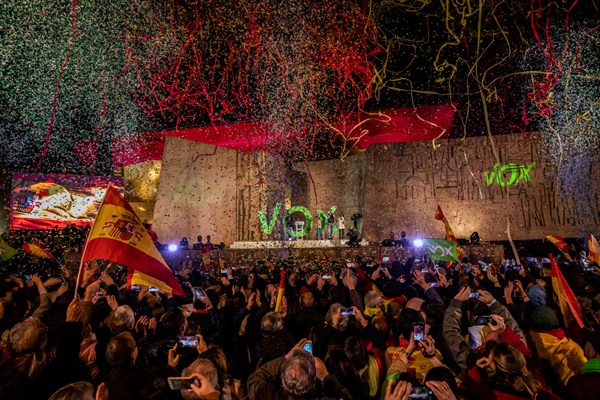It has taken four elections in as many years, but Spain’s politicians are finally coming to grips with coalition politics. Pedro Sanchez, the caretaker prime minister and leader of the center-left Socialist Party, called last Sunday’s election—the second this year—in the hopes of persuading the far-left Podemos party to accept a coalition government on his terms. Instead, with the Socialists losing seats and the far-right Vox party gaining ground, he has been forced to accept Podemos’ terms, including making its leader, Pablo Iglesias, deputy prime minister.
The two left-wing parties are still short of a majority in parliament and will need the acquiescence of either conservative or regional parties, including Catalan independence parties, to come to power. But their tentative governing pact, announced just two days after the election, is a hopeful sign that Spain is adapting to what political analyst Pepijn Bergsen of Chatham House has dubbed the “Dutchification” of European politics.
For decades, Spain’s Socialist Party and the conservative People’s Party split as much as 80 percent of the vote, with small Catalan nationalist parties acting as kingmakers in either one’s government. After the two major parties lost their duopoly on power in 2015—when Podemos and another newcomer, the centrist Ciudadanos, or Citizens, together won 35 percent of the vote—they struggled to adjust. Spain has had only minority governments since then, all of which were short-lived.

